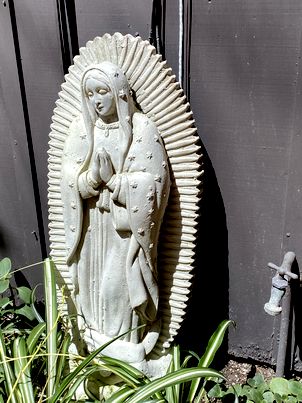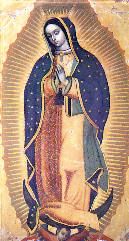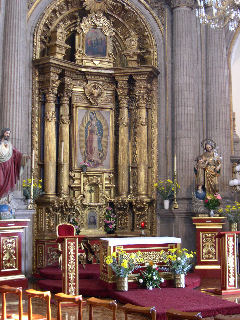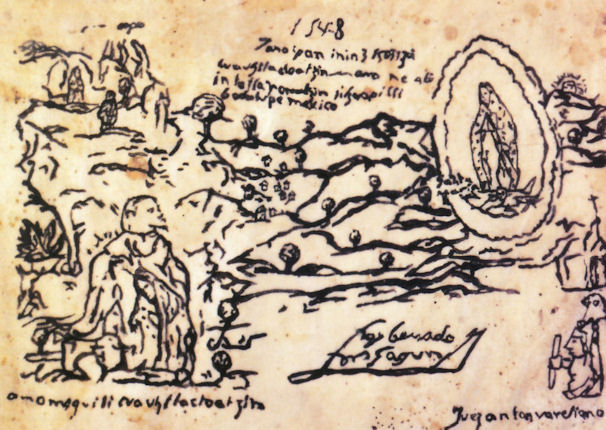 Content Challenge 117: Juan Diego has been disobedient and is effectively telling the Virgin that the dog ate his homework. How do you predict she will react? Why? Imagine your answer before you read on. Then, in light of what she actually does, how surprising was it? From the perspective of a narrative account, how interesting is her reaction? What does this encounter tell us about Juan Diego and about the Virgin?
Content Challenge 117: Juan Diego has been disobedient and is effectively telling the Virgin that the dog ate his homework. How do you predict she will react? Why? Imagine your answer before you read on. Then, in light of what she actually does, how surprising was it? From the perspective of a narrative account, how interesting is her reaction? What does this encounter tell us about Juan Diego and about the Virgin?The picture shows the Virgin of Guadalupe sold for use as a concrete "garden gnome." How should this be understood? Does it suggest affection? Intimacy? Respect? Irreverence?

 Content Challenge 121: Based on the text so far, do you think the Virgin healed Juan Diego's uncle or merely had knowledge that he was naturally recovering? What is the interpretation that is put upon the Juan Bernardino's illness by the end of the text?
Content Challenge 121: Based on the text so far, do you think the Virgin healed Juan Diego's uncle or merely had knowledge that he was naturally recovering? What is the interpretation that is put upon the Juan Bernardino's illness by the end of the text?
